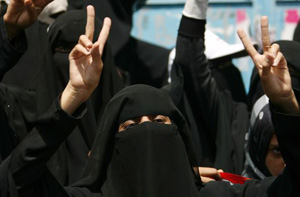Abha, Jan 20: Fouziyah Al-Karri is fast developing a reputation as a trailblazer for being the first Saudi woman to get a commercial license to operate in the Eastern Province construction industry.
Al-Karri now also operates as a property broker but complains bitterly about what she sees as a lack of support from the local Asharqia Chamber and other women in business.
She said that participation in the industry runs in the family because her father became a contractor after retiring from his job. Her personal interest in handicrafts has also helped to prepare her for the business.
“Being a woman was the first obstacle I faced in the contracting sector because men look at a woman working as a contractor as something odd,” Al-Karri said. She said the men contractors often ask her why she chose the construction industry.
Al-Karri said she was not initially permitted to participate in the sector. “So I began working in the field of commercial services. I became the first woman in the Eastern Province to get a commercial register, which then gave me entry into the contracting business,” she said.
She said she has the “complete support” of her husband and family. “However, I have always depended on myself. I want to prove that Saudi women are capable of undertaking any work in any sector as long as she gets the support and is trusted,” she said.
Al-Karri said few women are operating in the industry. Many more would get involved if government awards them large contracts, she said. “The projects I completed include maintenance of government schools, hotels in Alkhobar and Riyadh, offices for some companies and private villas.”
She said that some women are involved in name only, with their husbands or men relatives running their businesses. She is now aiming at getting more government contracts directly, and becoming a member of the local contractors’ committee, which is currently not open to women in the Eastern Province.
“I was denied membership of the committee at the Asharqia chamber because I am a woman,” she said, adding that this kind of treatment amounted to discrimination against women.
“My advice to Saudi women investors is to have passion for the projects they want to get involved in, and conduct detailed viability studies. This will give them self-confidence and courage in whatever they take on, including facing up to losses that might occur. They should know that losses are part of the road to success,” she said.
She also urged them to seek out advice and ideas from a wide group of people. She warned that they might not get proper information from government labor offices that apparently do not have proper staffing. Another obstacle is the “constantly changing” regulations of the Labor Ministry, she claimed.




Comments
Add new comment